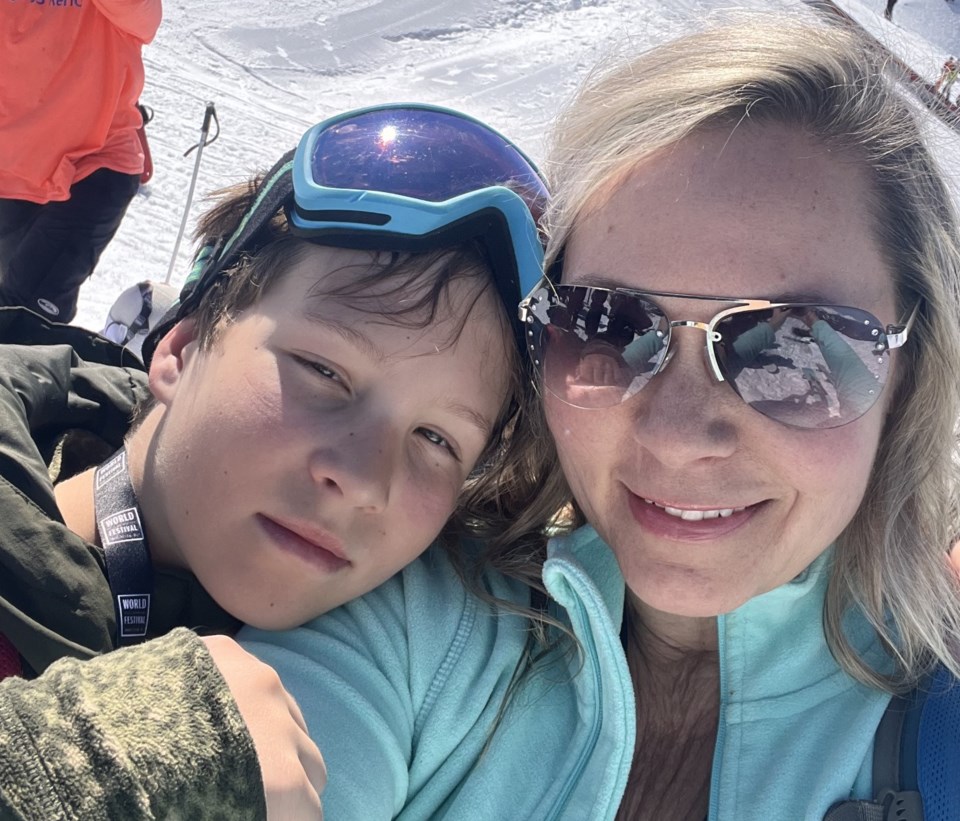When Kate Kozak lost her ex-husband, and father to her young son Jackson, last year to cancer, the community around her shone a light through a profoundly dark time.
“When Jackson’s father passed away, everyone was like, ‘How can I help?’ From businesses to friends and even people I didn’t know. Everything was up in the air,” recalled Kozak, the founder of the Amazing Kids Foundation, a non-profit dedicated to supporting Sea to Sky families with children who’ve lost a parent.
“The biggest thing people should know is this was inspired not only by Jackson, but them in the community as well. People came from far and wide saying, ‘I’m going to do a fundraiser for you. I’m going to help Jackson with school. I’m going to give you money for activities, gift certificates for food.’ So many people came out and gave me things, which was so beautiful because at that point I had no idea what to do.”
It was that widespread support that ultimately helped lead to the establishment of Amazing Kids. But while family and friends were there to support Kozak and her then- 10-year-old son’s emotional needs, there were still financial and logistical hurdles the grieving single mom was not immediately equipped to handle.
They’re the kinds of things we don’t necessarily consider after losing a partner or co-parent: Pensions. Death certificates. Applying for Canada’s paradoxically named “death benefit.” Counselling. Getting kids to school and activities that provide a sense of normalcy.
In her case, Kozak could no longer rely on support payments from her late ex-husband, Colin Jones, so had to navigate striking the right balance between running her business and spending crucial time with her son.
“We had our finances separate, our living arrangements separate—separate everything,” she explained. “I found it extremely hard. I was like, ‘How do people do this?’ Your heart’s broken, you’re dealing with your child, and navigating things like, ‘How many death certificates do I need? What are the next steps? Do I need counselling? Where should I go?’ I thought, ‘This has to be easier.’”
Thanks to Amazing Kids, things are easier. The foundation has two primary mandates. The first is to provide immediate financial assistance, and link families to community support, so kids can maintain their extracurricular activities, ensuring “a consistency in their day-to-day so not everything gets disrupted,” Kozak noted.
“Immediately we’ll be helping out with activities that the children are already doing, so if, say, they were going to snowboard lessons, we will either cover that expense or talk to Whistler Blackcomb. We’ll navigate that to get it discounted and top it up. We’ll do that within the community as well [with other organizations],” she added.
The second is to help families navigate a host of resources and administrative tasks associated with losing a partner or co-parent. Kozak said the non-profit is working on an interactive form on its website that will allow families to input their specific circumstances and get back a list of applicable resources, from links to Canada Pension forms and local social service and counselling providers.
“It’s very niche, but it changes someone’s whole life,” Kozak said.
Amazing Kids is in the process of applying for charitable status, which will open it up to potential grant funding. Kozak said she’d like to see the organization eventually offer summer camps for kids in the corridor as well as a mentoring program similar to Big Brothers-Big Sisters.
The non-profit counts six board members, as well as its dedicated youth coordinator, 11-year-old Jackson.
“It makes me feel happy that I get to help other people who have lost one of their parents or both,” the Spring Creek student told Pique.
To learn more, visit amazingkidsfoundation.org. To hear how you can donate, email give@ amazingkidsfoundation.org





